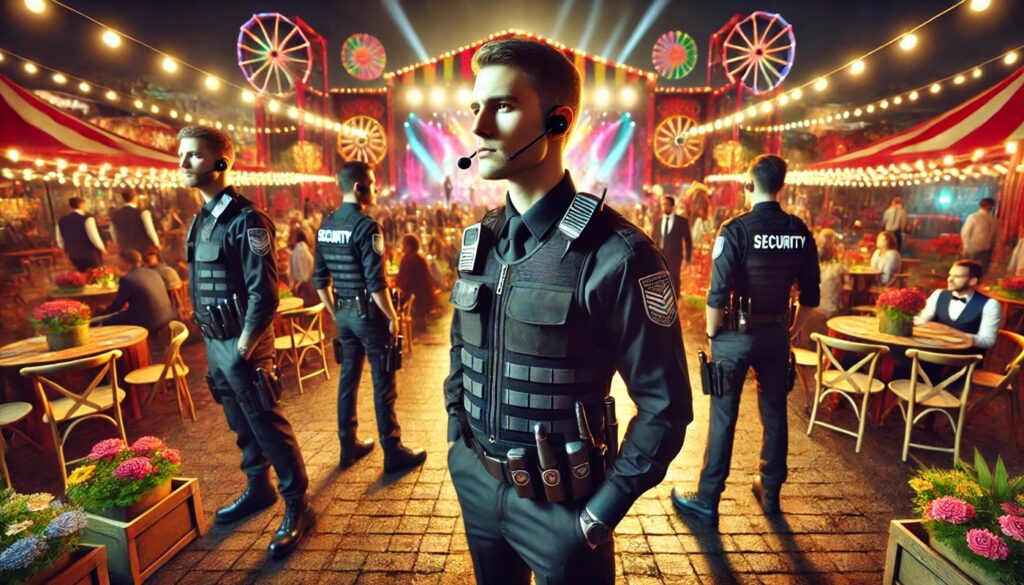Hosting an event in Melbourne, whether it’s a corporate gathering, wedding, or a community festival, comes with its own set of challenges. One of the most critical aspects of planning an event is ensuring the safety and security of attendees, staff, and the venue itself. In a bustling city like Melbourne, where events are frequent and diverse, it’s essential to adopt best practices for securing your venue. Here’s a comprehensive guide to help you navigate this vital aspect of event planning.
1. Conduct a Risk Assessment
Before diving into specific security measures, start with a thorough risk assessment of your venue. Identify potential vulnerabilities and the types of risks associated with your event. Consider factors such as:
- Location: Is the venue in a busy area with easy access to public transport? Are there potential security threats nearby?
- Event Type: Different events may attract different crowds and behaviors. A corporate event may require different security considerations than a music festival.
- Expected Attendance: Larger crowds can pose more significant challenges in terms of crowd control and safety.
Involving security experts or local law enforcement in your assessment can provide valuable insights into specific threats and vulnerabilities.
2. Hire Professional Security Personnel
Once you’ve identified the risks, consider hiring professional security personnel. Trained security staff can effectively manage crowds, prevent unauthorized access, and respond quickly to any incidents. When selecting a security team, look for:
- Experience: Ensure they have experience in managing events similar to yours.
- Licensing: All security personnel should be properly licensed and insured according to Victorian regulations.
- Training: Verify that the staff is trained in emergency response, conflict resolution, and crowd management.
Discuss your specific needs with the security team to tailor their approach to your event. They should be able to provide guidance on crowd management, access control, and emergency procedures.
3. Implement Access Control Measures
Controlling access to your venue is crucial for ensuring safety. Here are some effective access control measures:
- Ticketing: Use a ticketing system that allows for pre-registration and entry tracking. This not only helps manage the crowd but also assists in identifying attendees in case of an emergency.
- Credential Checks: For events with restricted areas, implement a credential check for staff and vendors. Use wristbands or badges that are clearly identifiable.
- Entry Points: Limit the number of entry points to the venue to streamline security checks. Ensure all entry points are monitored by security personnel.
Additionally, consider using metal detectors or bag checks for high-risk events to prevent prohibited items from entering the venue.
4. Develop a Comprehensive Emergency Plan
An emergency plan is essential for any event. It should outline procedures for various scenarios, such as medical emergencies, fire evacuations, or natural disasters. Key components of your emergency plan should include:
- Communication Protocols: Establish clear communication channels among your staff, security personnel, and emergency services. Use walkie-talkies or mobile apps for real-time updates.
- Evacuation Routes: Clearly mark evacuation routes and exits throughout the venue. Conduct drills before the event to ensure everyone knows the procedures.
- First Aid Services: Arrange for medical personnel to be on-site during the event. Ensure they have access to necessary medical supplies and equipment.
Distributing this information to all staff and volunteers before the event will ensure everyone is prepared to act quickly if necessary.
5. Use Technology for Enhanced Security
Leveraging technology can significantly enhance your venue’s security. Consider incorporating the following:
- CCTV Surveillance: Install cameras throughout the venue to monitor activity and deter potential security breaches. Ensure these cameras cover all critical areas, including entry points and high-traffic zones.
- Alarm Systems: Equip the venue with alarm systems that can alert security personnel and law enforcement in case of emergencies.
- Mobile Apps: Utilize event management apps that include safety features, such as emergency contacts, evacuation maps, and real-time alerts for attendees.
Investing in technology can provide an added layer of security and help you respond more effectively to any incidents.
6. Train Staff and Volunteers
All staff and volunteers involved in your event should receive training on security protocols. This includes:
- Identifying Potential Threats: Train staff to recognize suspicious behavior and report it to security personnel.
- Emergency Procedures: Ensure everyone understands their role in the event of an emergency, including evacuation protocols and communication procedures.
- Customer Service: Emphasize the importance of customer service in security. Staff should be approachable and knowledgeable, as this can help defuse potential conflicts before they escalate.
Regular training sessions leading up to the event will ensure that everyone is prepared and confident in their roles.
7. Foster a Safe Environment
Creating a positive and safe atmosphere is essential for a successful event. Encourage attendees to report any suspicious activity or concerns to staff. Additionally, consider implementing the following:
- Alcohol Management: If serving alcohol, establish a responsible service policy. Monitor consumption and intervene when necessary to prevent over-serving.
- Code of Conduct: Clearly communicate the expected behavior to attendees. Display signs outlining your event’s code of conduct and consequences for violations.
By fostering a culture of safety and respect, you can enhance the overall experience for everyone involved.
Conclusion
Securing your venue during events in Melbourne is a multifaceted task that requires careful planning and execution. By conducting a thorough risk assessment, hiring professional security personnel, implementing access control measures, developing an emergency plan, utilizing technology, training staff, and fostering a safe environment, you can ensure the safety and security of your event. Prioritizing these practices not only protects your attendees but also enhances your event’s reputation, making it a memorable experience for all.

